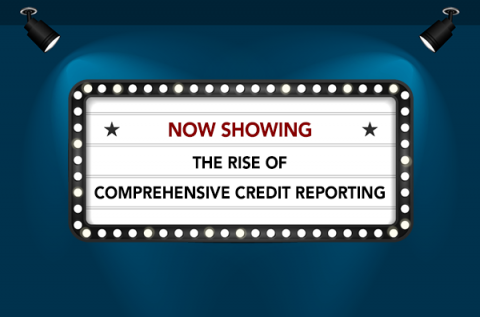Comprehensive Credit Reporting Update

Here’s some good news coming soon!
Comprehensive Credit Reporting (CCR) is being implemented by the ‘Big 4’ banks in Australia in a two-stage process. Since July 2018, those ‘Big 4’ (CBA, ANZ, Westpac and NAB) have all information available to them, both positive and negative, for at least 50% of their credit accounts. That information is being shared with credit bureaus, like Equifax. With delays in legislation out of the way, the ‘Big 4’ are now required to provide eligible account information for the remaining 50% by September 2019.
Why does this matter?
Requiring the banks to report more data, including positive data, to credit bureaus means that more accurate credit information should be included on your credit report. This means that prospective lenders can get a more comprehensive picture of you as a consumer, and this should bring additional benefits when you want to seek out competing finance offers in the marketplace. It is also likely your credit score will change more regularly with CCR, due to the additional positive information being supplied by banks to credit reporting bodies such as Equifax.
For example, let’s say you apply for a mortgage or a new credit card. The credit provider will do a background check to assess its risk in making an offer to you; i.e. to get comfortable that you are likely to repay any credit it extends to you. As part of this, it may ask a credit bureau, such as Equifax, to give it a copy of your credit report. In the past, these files only included negative information, such as defaults or missed payments, which gave them a pretty limited view. With more positive information, lenders will have a much more complete view of your financial situation, so you can expect that they will be more likely to extend you credit, or may even offer you a better pricing deal.
What is Comprehensive Credit Reporting (CCR) exactly?
CCR introduces positive credit reporting, hence it is described as ‘comprehensive’. It introduces the reporting of data that reflects positive credit behaviours. Giving lenders richer and more accurate data about all of your credit behaviours and history allows them to more accurately assess credit applications. It also better enables them to match the credit they offer you to your particular needs and circumstances. With some lenders you may be rewarded for a good credit score, with a lower interest rate or longer payment terms, for example.
What are the benefits?
These government-led changes are intended to benefit consumers and better protect their interests. In the past, Australia had a negative credit reporting system, meaning that only negative credit events, such as defaults or any other serious credit infringements, made it onto your credit report along with personal information and details of previous credit enquiries.
Now your credit report will give a more full picture of you – showing both the good (i.e. meeting monthly loan repayments on time, over the last 2 years) and the bad (missing monthly loan repayments). This means if your report is full of the good a lender may be more inclined to offer you the credit you applied for, as they know you’ve been paying all other repayments on time.
How will it affect my credit report?
With more data, your credit score may change. Positive credit behaviours – such as meeting your monthly loan repayments on time – can positively influence your credit score. Some consumers should have already started to see changes to their credit score, as some data has been slowly shared by ‘Big 4’ lenders since July 2018.
While only the ‘Big 4’ are legally required to share this data currently, we think other credit providers are likely to follow suit within a similar time frame in order to remain competitive.
What kind of new information will be on my credit report?

Do I need to do anything?
 Nope. The changes may take some time to flow through the system, but no action is required on your end. However, CCR creates a real opportunity to have your use of credit give you the best opportunity of being accepted for a loan, credit card, or any other type of credit, when next you need to apply for that. Changing your credit behaviours and use habits now can potentially improve your prospects for future credit. It is also a good idea to monitor your score closely and check your credit report regularly, to be aware of any changes and make sure all of your information is accurate.
Nope. The changes may take some time to flow through the system, but no action is required on your end. However, CCR creates a real opportunity to have your use of credit give you the best opportunity of being accepted for a loan, credit card, or any other type of credit, when next you need to apply for that. Changing your credit behaviours and use habits now can potentially improve your prospects for future credit. It is also a good idea to monitor your score closely and check your credit report regularly, to be aware of any changes and make sure all of your information is accurate.
Disclaimer: The information contained in this article is general in nature and does not take into account your personal objectives, financial situation or needs. Therefore, you should consider whether the information is appropriate to your circumstance before acting on it, and where appropriate, seek professional advice from a finance professional such as an adviser.
RESOURCES
